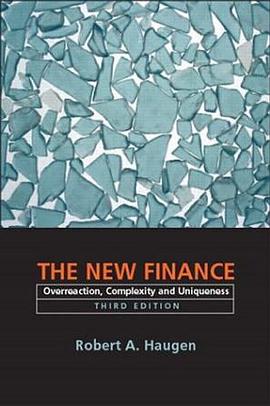

This work makes the case for an inefficient stock market, where the complexity and uniqueness of investor interactions has important market pricing implications. The efficient market's paradigm is at the unlikely extreme end of a spectrum of possible states. As such, the burden of proof falls on its advocates. It is their burden to deflect the stones and arrows flung at the paradigm by the nonbelievers. It is their burden to reveal the inaccuracies of those who present evidence contending that the paradigm doesn't square with the facts. Moreover, the case of market efficiency has been made many times by others. In fairness to the growing number of advocates for the other side, I present here, and in the two other books of this trilogy, Beast on Wall Street: How Stock Volatility Devours Our Wealth and The Inefficient Stock Market: What Pays Off and Why, a comprehensive and organized collection of the evidence and the arguments that constitute a strong and persuasive case for a complex and, at times, nearly chaotic stock market that overreacts to most things in particular, to past records of success and failure on the part of business firms. It is a market that prices with great imprecision, with signals coming from the prices of other stocks as its dominant driver. In the course of this work, I shall make a case for the following assertions: Players in today's stock market persistently make a fundamental mistake overreacting to records of success and failure on the part of business firms. This mistake was also made in the distant past, only to be rectified. Stock investors began making the mistake once again in the late 1950s, and they continue to make it today. Those who recognize the mistake can build stock portfolios, or find mutual funds, that will subsequently outperform the market averages. Owing to the foregoing mistake, the stocks that can be expected to produce the highest returns in the future are the safest stocks. Risky stocks can be expected to produce the lowest returns! Because of agency problems in the investment business, the opportunity that is there now is likely to remain there in the future. Models in financial economics aggregate from assumed preferences to conclusions about market pricing. Game-theoretic models consider interactions among market participants, but given the preferences, wealth, information, and other aspects explicitly considered, responses to identical stimuli are presumed to be identical. The New Finance argues that each interaction must be considered as entirely unique, making aggregation, in any way, from the preferences and behaviors of interacting individuals to meaningful conclusions about the structure and behavior of market prices a meaningless exercise. Thus, both rational and behavioral economics need to be reconsidered.
具體描述
讀後感
用戶評價
目測是本不錯的書 不過貌似學術瞭些 離市場遠瞭點 好多東西寫得糙
评分目測是本不錯的書 不過貌似學術瞭些 離市場遠瞭點 好多東西寫得糙
评分目測是本不錯的書 不過貌似學術瞭些 離市場遠瞭點 好多東西寫得糙
评分目測是本不錯的書 不過貌似學術瞭些 離市場遠瞭點 好多東西寫得糙
评分目測是本不錯的書 不過貌似學術瞭些 離市場遠瞭點 好多東西寫得糙
相關圖書
本站所有內容均為互聯網搜索引擎提供的公開搜索信息,本站不存儲任何數據與內容,任何內容與數據均與本站無關,如有需要請聯繫相關搜索引擎包括但不限於百度,google,bing,sogou 等
© 2025 onlinetoolsland.com All Rights Reserved. 本本书屋 版权所有




















